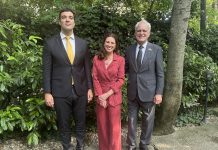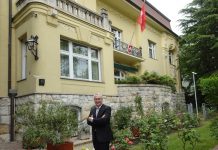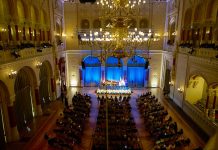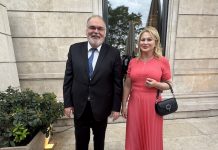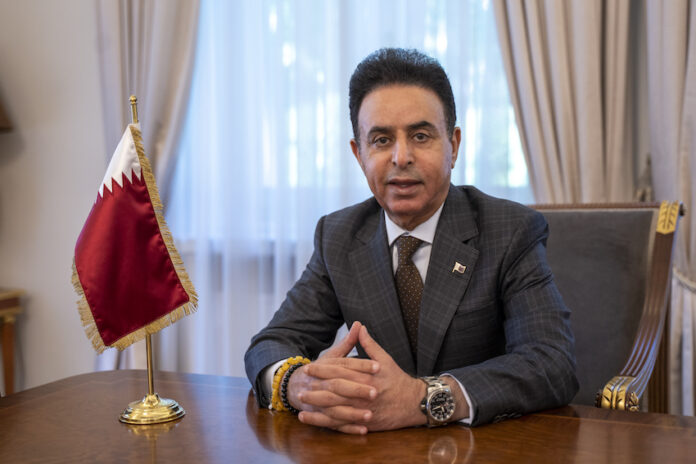Interview with H.E. Mr Abdulla Falah Al-Dosari, Ambassador of the State of Qatar to Hungary
Edited by Anna Popper
Your Excellency, You presented Your credentials as Ambassador of the State of Qatar to Hungary in 2021. What has been Your experience in this position so far?
– At the outset, I would like to thank your esteemed magazine and to you personally for giving me the opportunity to answer your questions and present my country’s viewpoint on various political, economic and other issues.
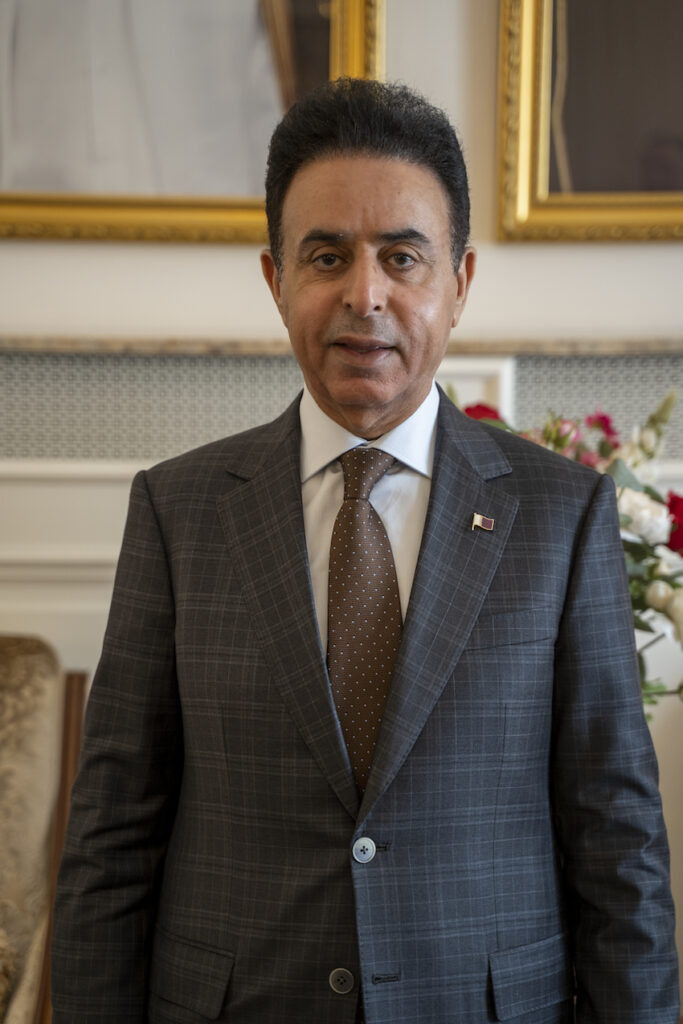
It has been about 10 months since I came to Hungary. I feel that during this short period of time I have come to know a country and society that is active, developed and full of love for life. I made new friends and acquaintances from different segments of the Hungarian people. I became more and more familiar with the history of Hungary and the region of Eastern Europe, which we didn’t know much about before. We can say that it is an ancient history spanning more than a thousand years, where Hungary witnessed very great events, but it maintained its entity, and this in itself is a great thing.
I would like to ask You to reveal “the secret of Qatar’s success story” in economic, social and cultural fields.
– Since His Highness Sheikh Hamad bin Khalifa Al Thani (currently the Father Emir) took over the reins of government in 1995, His Highness has had a charismatic personality, ambition, insight and a vision for the future, represented in how to transfer the State of Qatar from a country with a small area and income to an eminent country.
At first, the thinking focused on finding sources of income for the country other than oil, the price of which is rising and falling. He asked major international companies to explore for gas in Qatar, but they saw that it was useless because it was not available until we found companies from Japan that accepted, began exploration and discovered significant reserves that can be extracted and exported. Here, what His Highness had dreamed of came true, as requests for participation and contribution in exploration and production came from many countries and companies.
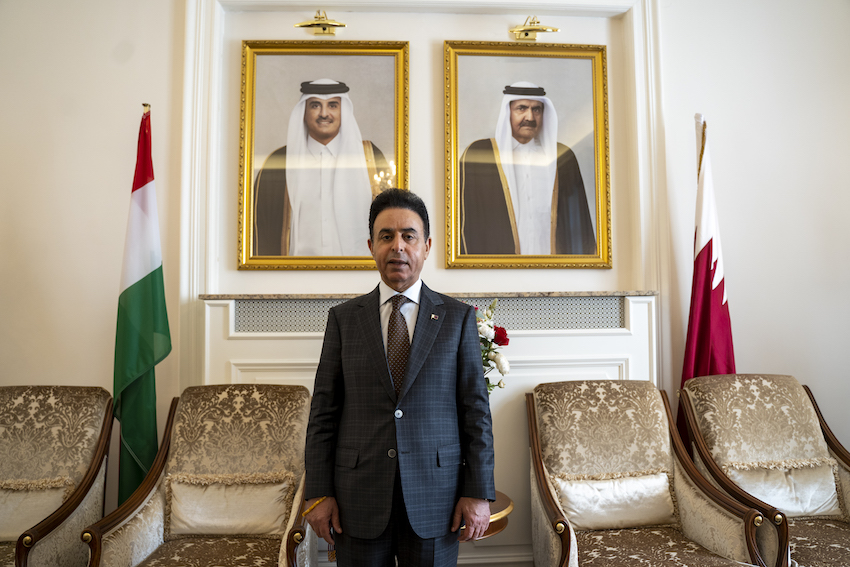
Under the direction of His Highness, these revenues were used for development, such as establishing the infrastructure of roads, seaports, an international airport, communication systems and the Internet. All of this happened in a decade that allowed Qatar to host many international conferences and forums, sports activities, and build diplomatic and economic relations with most countries of the world. Even the State of Qatar’s success to host the 2022 World Cup is due to His Highness the Father Emir, who stood behind this success and supported the file submitted by the State of Qatar to FIFA.
In 2013, His Highness Sheikh Tamim bin Hamad Al Thani, Emir of the State of Qatar took over the reins of government, when His Highness was then the Crown Prince and was aware of all the transformation mentioned above, and the world has come to look at the State of Qatar as an important partner in resolving current issues, for example, but not limited to energy.
His Highness Sheikh Tamim bin Hamad Al Thani has the same vision of making the State of Qatar present with full force in international issues and working diligently to activate its role in building relations with countries of the world, international organisations and the international community with mutual respect and without interfering in internal affairs per country or impose any preconditions.
In addition to the economy, the State of Qatar has taken care of the development of cultural, artistic and scientific life in society and has established museums, theatres, schools, universities, hospitals, stadiums, sports clubs and other facilities.
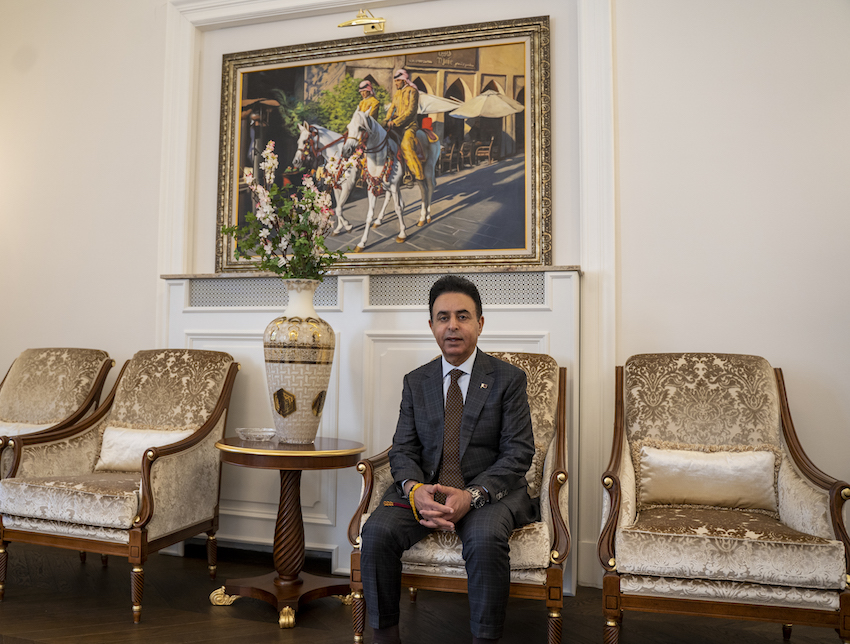
The State of Qatar gives great importance to sport, beside arts and culture. Qatar has been the first Arab state to host the prestigious FIFA 2022 World Cup, as the smallest country to ever organise this event. Can You inform us about the preparations of the largest high-profile event soon to be held in the State of Qatar? (It promises to have a wide impact as new opportunities emerge for Qatar, other GCC states and the region. As a result of the investment and development drive, the country aims to become a centre for major sport events. With more than 1 million visitors expected, this mega-event will accelerate growth in diverse sectors such as tourism, hospitality and infrastructure, and will contribute to the goals of Qatar’s National Vision 2030.)
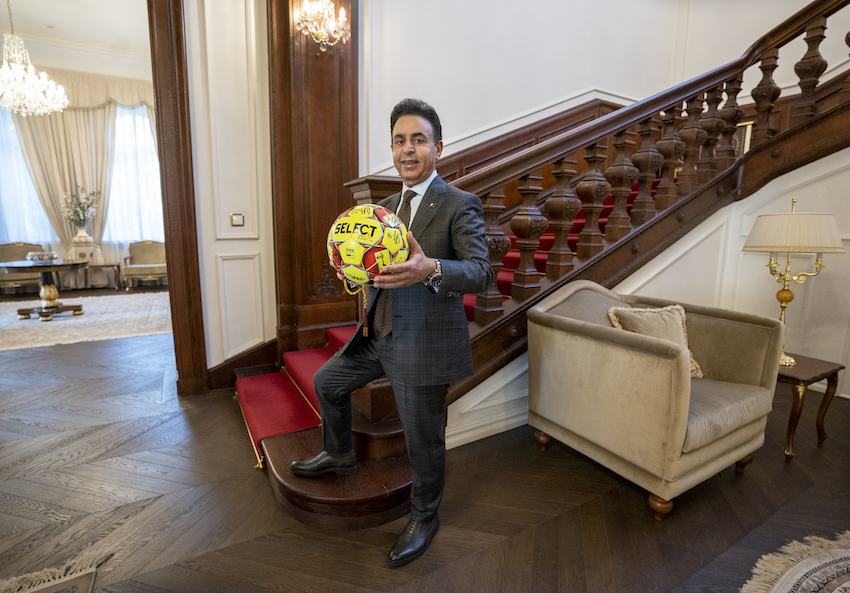

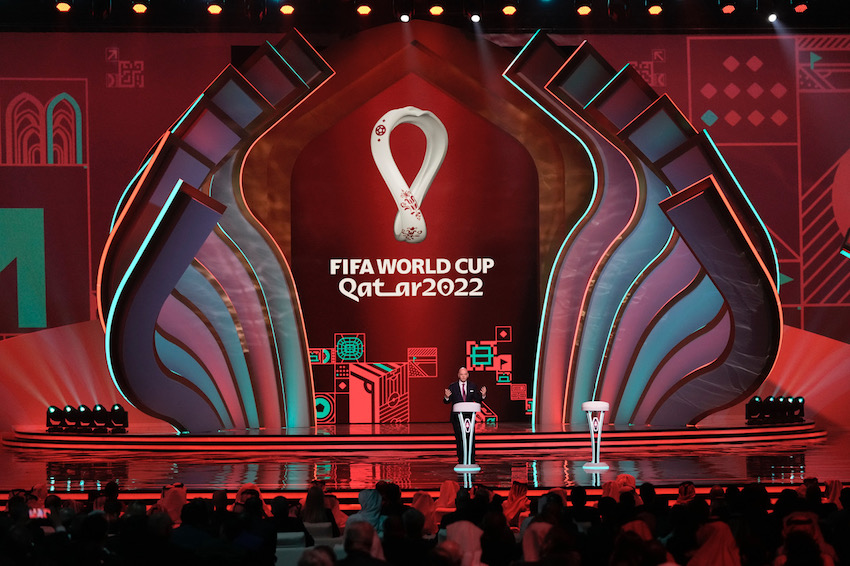
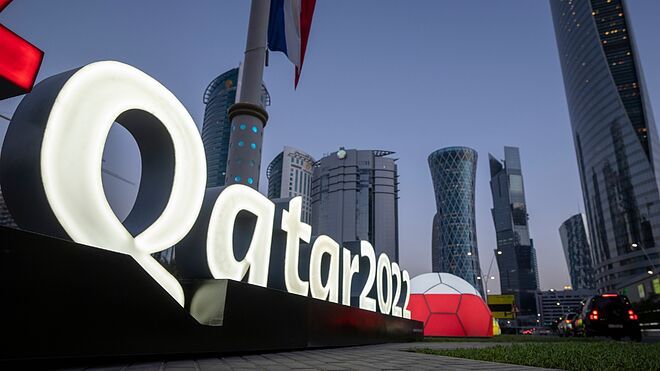
– The State of Qatar attaches great importance to sports in all its fields and is determined to improve its performance and capabilities, and to achieve excellence in this field. For this reason, a national sports day has been designated, which is an official holiday that falls on the Tuesday of the second week of February every year. The National Sports Day, the first of which was launched in 2012, aims to encourage participation in sporting activities, during which hundreds of sporting events are organised across the country.
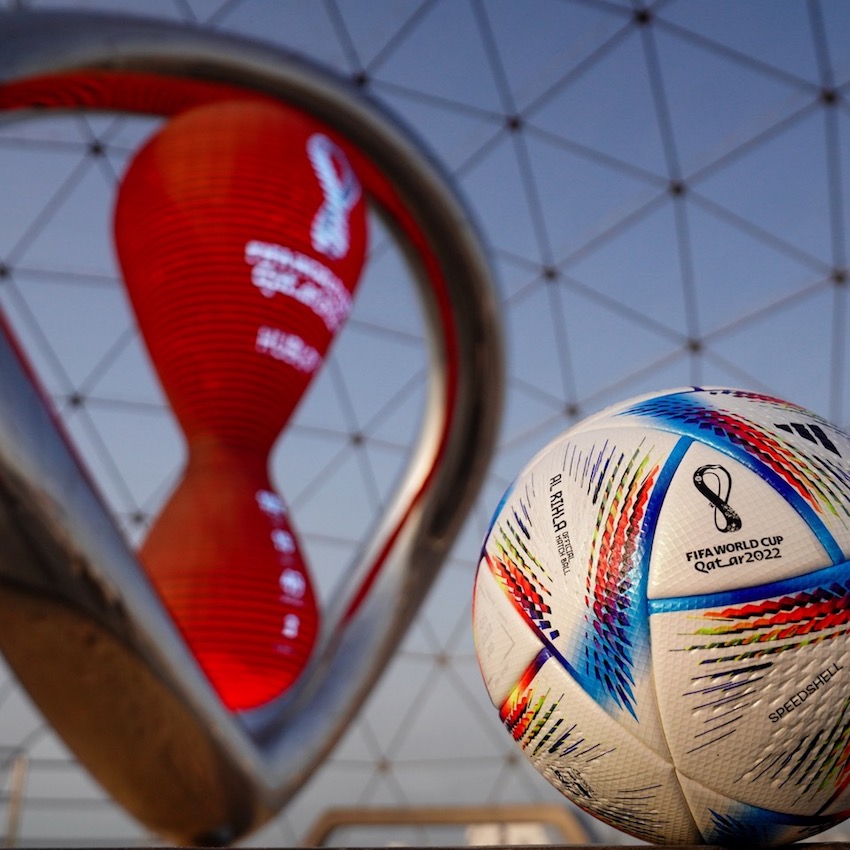
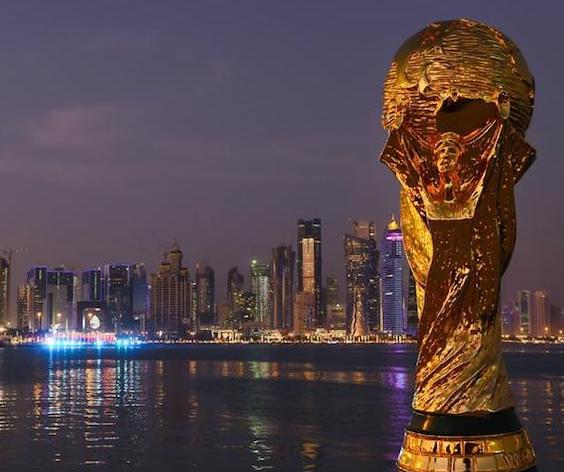
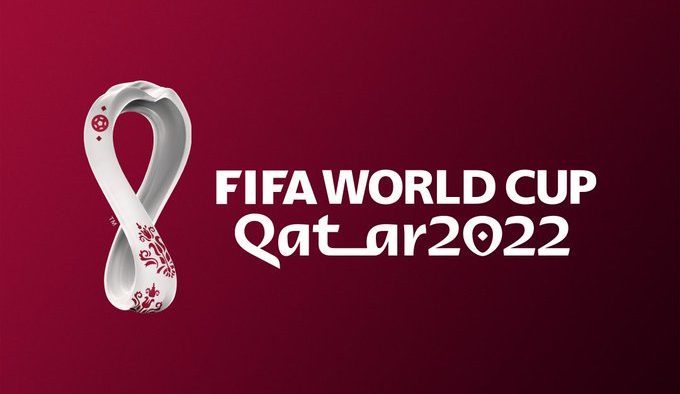
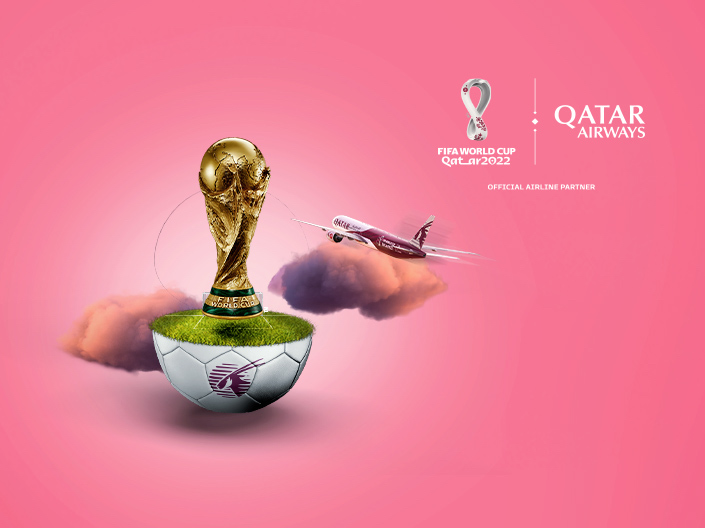
International Sports Centre
Sport plays a major role in Qatar National Vision 2030, as we aspire for Qatar to occupy a world leading position in the field of sports, and to bring the world together through sustainable sports development, taking advantage of the achievements made to date.
The State of Qatar has hosted nearly 500 international sports events since 2005, covering all types of sports and all age groups.
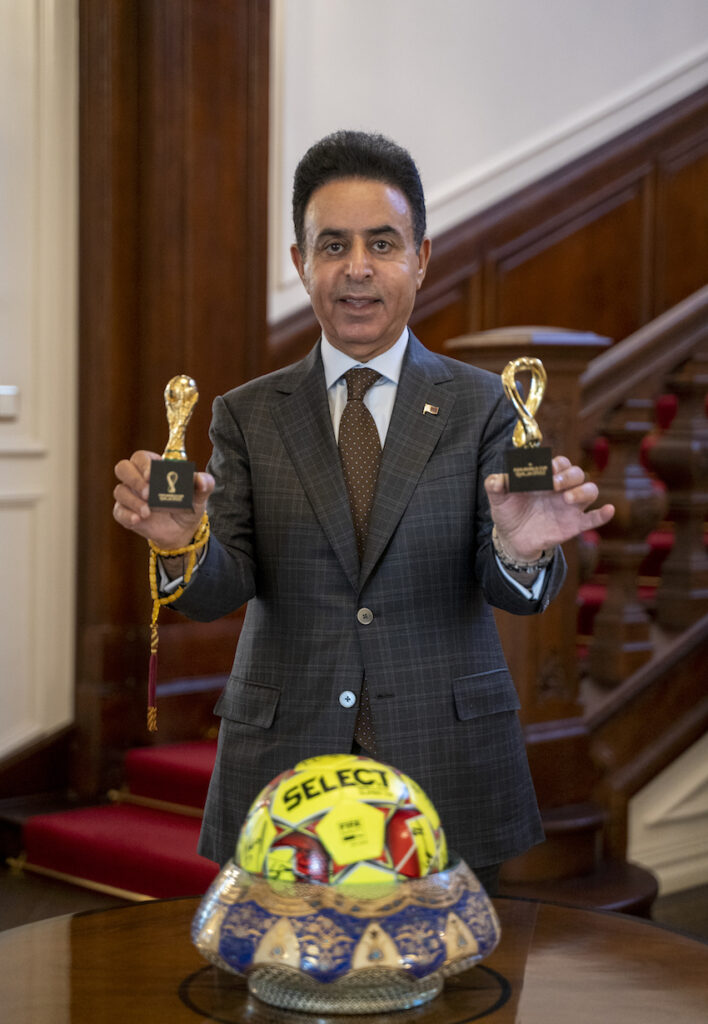
We are also very proud in Qatar to host the 2022 FIFA World Cup for the first time in the Arab world, which will give fans a clear picture of Arab culture and contribute to strengthening development efforts in the region.
The 2022 FIFA World Cup has been the 22nd quadrennial international men’s football championship. It is scheduled to take place from 20 November to 18 December 2022 in Qatar. In just a few weeks the focus will be on football and Qatar will capture the world’s attention on a major stage.
Qatar has eight FIFA World Cup 2022 stadiums across the country – none more than an hour apart – in Doha, Lusail, Al Khor, Al Wakrah and Al Rayyan.
Khalifa International Stadium has undergone a complete refurbishment, while seven new stadiums have been built and their extraordinary designs pay tribute to the region’s rich culture, heritage and traditions – reflecting Qatar’s commitment to sustainability and innovation. A variety of accommodation options will be available for the visitors, keen football fans and supporters, including hotels, apartments and villas, cruise ship hotels, and fan villages. www.qatar2022.qa
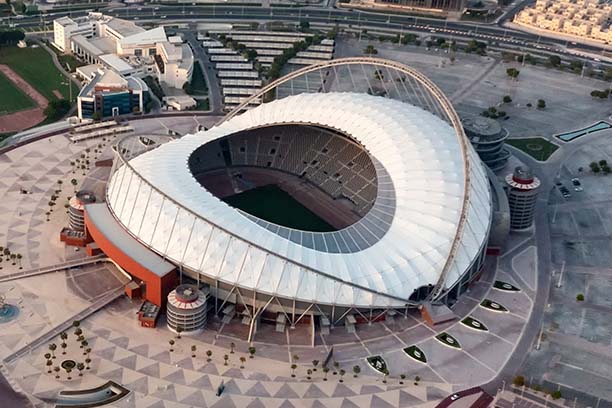
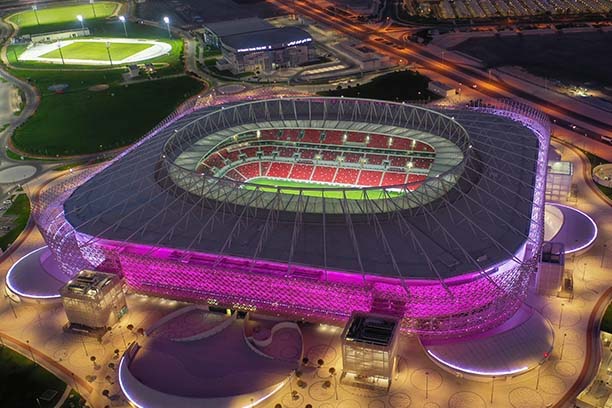
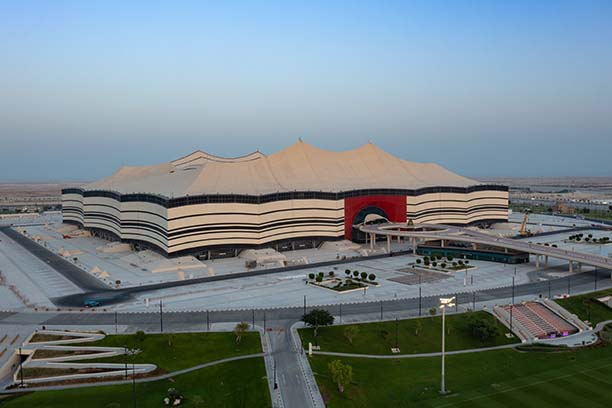
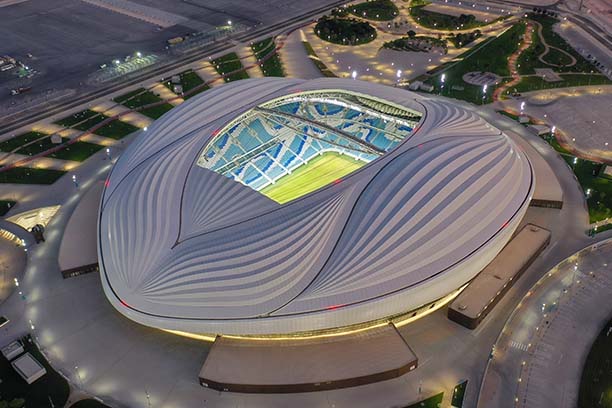
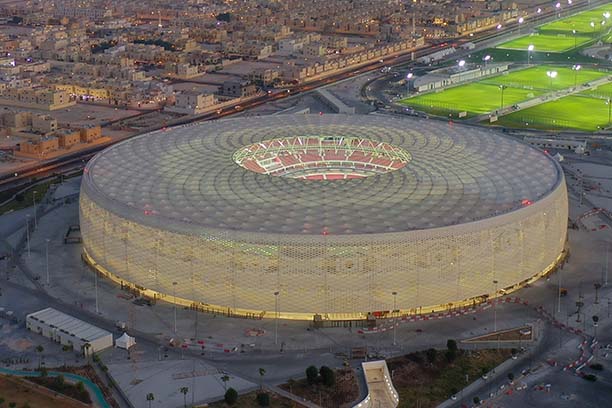
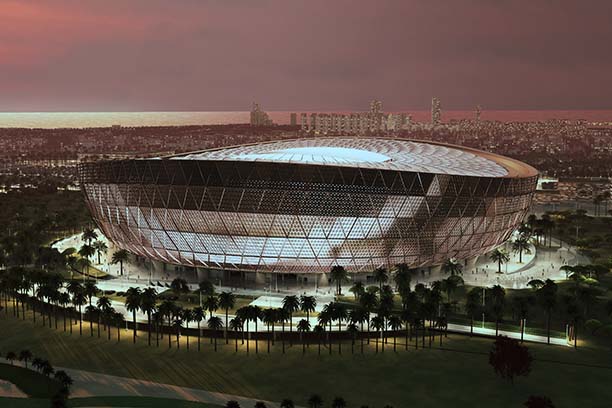
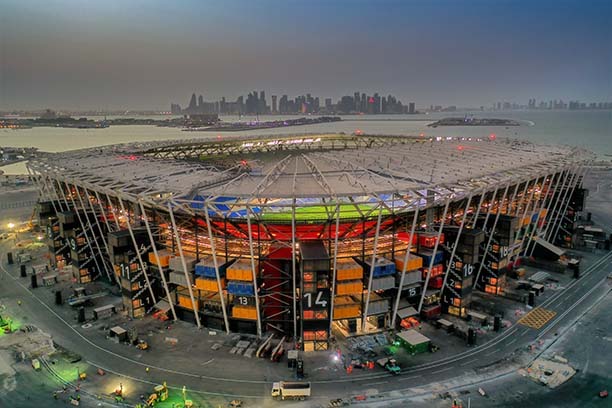
Stadium 974
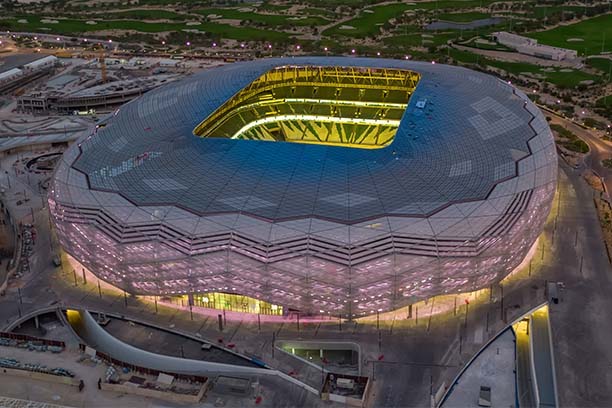
The State of Qatar has submitted a request to the Olympic Council of Asia to host the 2030 Asian Games in the hope that by doing so we will contribute to promoting the sustainable sports legacy of the Asian continent. The “Doha 2030” Asian Games is a national priority and enjoys the full support of His Highness the Emir. In preparing its world-class plan, the file committee relied on the long experiences it had gained in hosting of major sporting events in the city of Doha, and the large number of modern sports facilities.
The State of Qatar believes that sport has established Qatar’s position at the global level, and has made sport one of the important factors in the pillars of the country’s sustainable development.
Oil and gas forms the backbone of Qatar’s economy and ranks 3rd in the world for natural gas reserves and is the leading exporter of liquefied natural gas (LNG). However, Qatar is making efforts to diversify its economy, what are the pillars of the country’s major project: “Qatar National Vision 2030”. How does Qatar see the post-oil and gas-era?
– According to Amiri Resolution No. (44) of 2008, the comprehensive development vision for the State of Qatar, “Qatar National Vision 2030” was approved, considering that comprehensive development is the primary goal to achieve progress and prosperity for the citizens, as Qatar Vision 2030 aims to transform Qatar into an advanced country capable of achieving sustainable development and ensuring the continuation of a decent life for its people, generation after generation. This vision is concerned with the targeted results, not with the details of how to access them, as it provides a general framework through which national strategies and more detailed implementation plans are prepared. This vision lays out the defining features of the future, illustrating the five key challenges as follows:
• Modernization while preserving traditions.
• The needs of the current generation and the needs of future generations.
• Targeted growth and uncontrolled expansion.
• The development path and the size and quality of the targeted expatriate workforce.
• Economic and social development, and environmental protection and development.
The vision also included the most important principles that guide it:
• Safeguarding public and personal freedoms.
• Protects moral and religious values and traditions.
• Ensures security, stability and equal opportunities.
The National Vision foresees development prospects through the following four interrelated pillars:
• Human development: the progression and development of the population of the State of Qatar to be able to build a prosperous society.
• Social development: developing a just and secure society based on good morals and social care, able to deal and interact with other societies, and play an important role in the global partnership for development.
• Economic development: the development of a diversified and competitive national economy, capable of meeting the current and future needs of Qatari citizens, and securing a high standard of living.
• Environmental development: managing the environment in a way that ensures harmony and consistency between economic and social development and environmental protection.
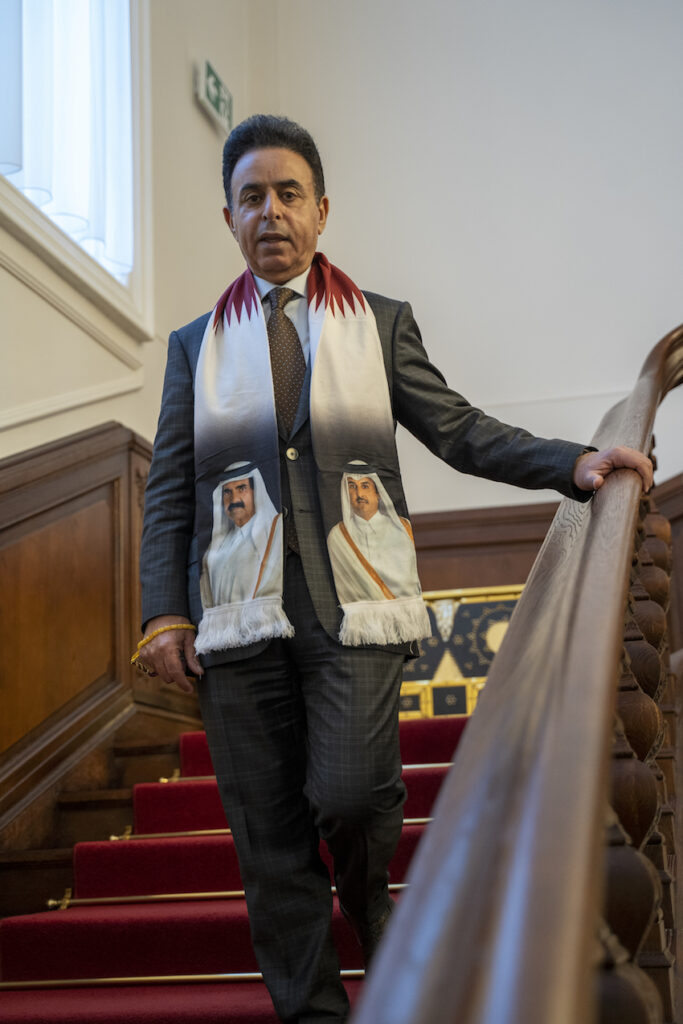
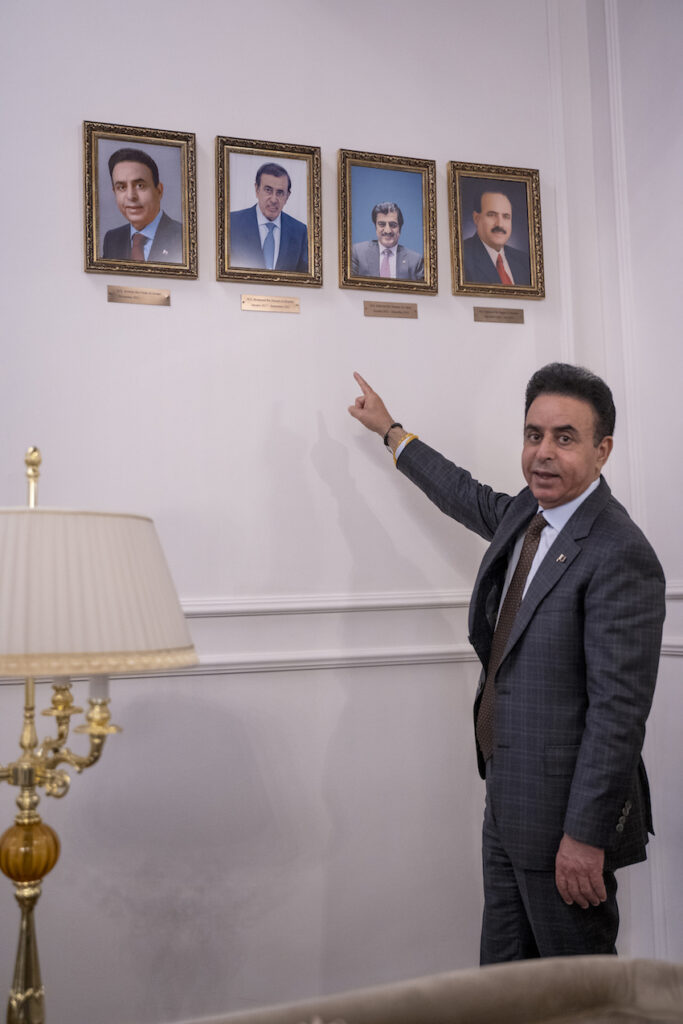
How do You assess the bilateral ties between Qatar and Hungary? In which areas do You think the potential for cooperation has not yet been exploited?
– Qatari-Hungarian relations date back to 1990, when diplomatic relations were established between the two countries at the level of non-resident embassies, and in late 2004 a resident embassy of the State of Qatar was opened in Budapest. We can say that the two countries have good relations in various areas, especially in the political ones, where there is a consensus of opinions, positions and views towards most regional and international issues, especially the two countries’ positions on solving crises through dialogue and sitting at the negotiating table, as well as on the role of the family, preserving religious values and normal human instinct.
- Hungary took a positive stance on the Gulf crisis, urging them to sit down at the negotiating table and solve the outstanding problems through dialogue.
- As for the diplomatic field, cooperation and coordination are taking place between the State of Qatar and Hungary in exchanging support for both countries’ candidates in international organisations, and this cooperation has proved successful on several occasions.
- The Coronavirus pandemic had a negative and direct impact on the development of bilateral relations at all levels, as communication between the institutions and agencies of the two countries was cut off and reduced to the minimum level of coordination.
- Contrary to good political and diplomatic relations, economic relations never live up to the hoped-for level based on the great potentials on both sides.
- In addition to our work as diplomats, we believe that high-level visits can give a strong impetus to strengthen existing ties between the two countries and increase the level of trade and economic exchanges and investments.
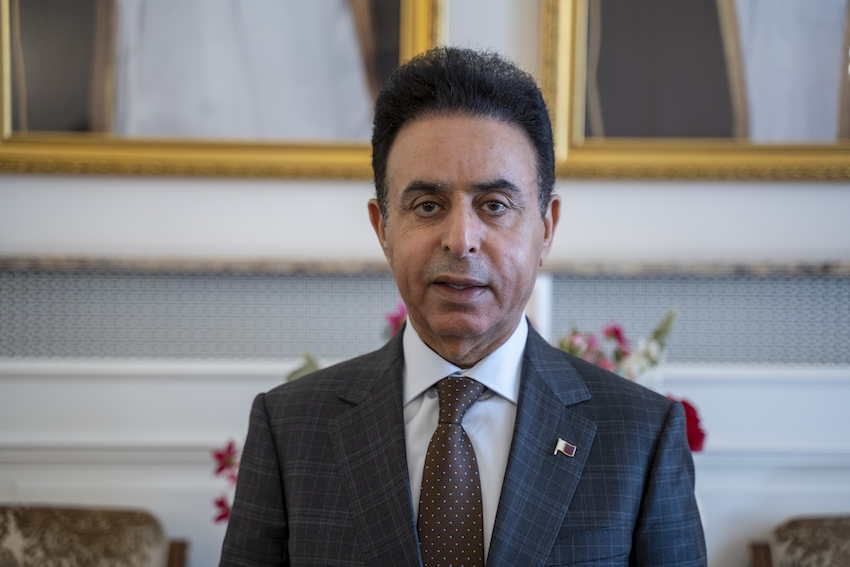
What are the main principles and priorities of Qatar’s foreign policy?
– I would like to emphasise that the State of Qatar has pursued an open foreign policy that relies on activating soft power tools such as media, diplomacy, education, culture, sports, tourism, economy and humanitarian aid. It was based on several strategies, the most important of which are: the strategy of good neighbourliness, the strategy of alliances with major and medium powers, and the strategy of building a positive mental image among all the peoples on earth.
Proceeding from the fact that the political doctrine of the State of Qatar in the field of international relations is based on the consolidation of international stability and security; Therefore, Qatari foreign policy was based on a set of constants, the most important of which are: encouraging the peaceful settlement of international disputes, supporting the right of peoples to self-determination, non-interference in the internal affairs of the countries, and cooperating with peace-loving nations.
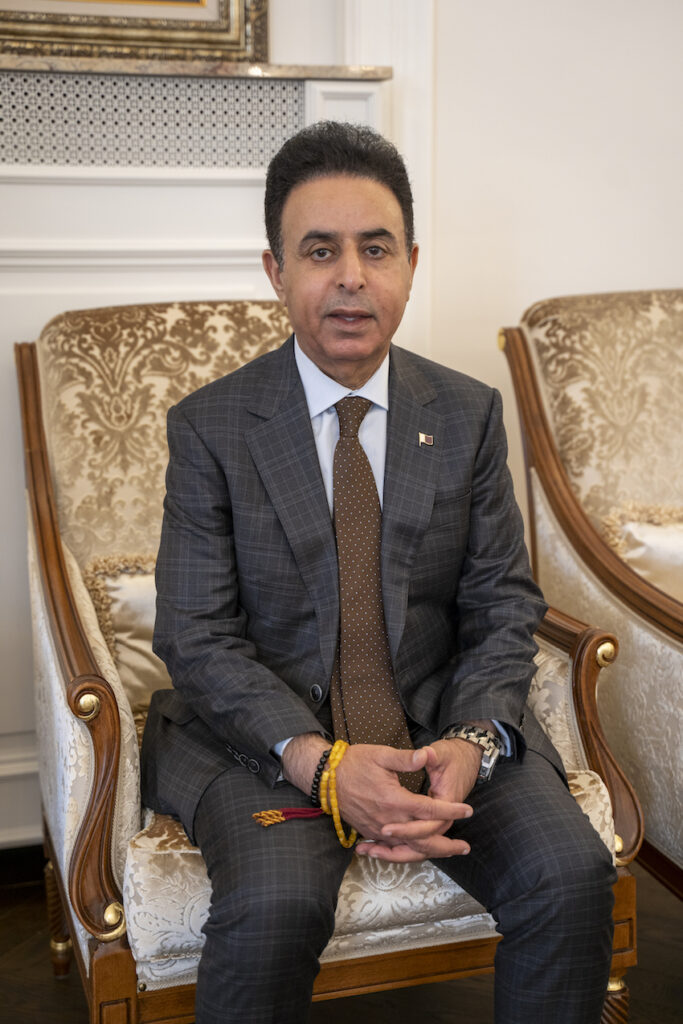
Your Excellency, tell us please about Your professional, diplomatic career.
– After I obtained a Bachelor’s degree in political science in 1980, I started working in my country’s Ministry of Foreign Affairs, and have since represented my country at the United Nations in New York, Geneva and Vienna, and served as Ambassador in Islamabad, Brussels and Rabat, as well as working in various departments of the Qatari Ministry of Foreign Affairs.
How do You spend Your leisure time after the busy working days?
– I try to spend my free time with my family and friends, strolling the beautiful streets of Budapest, visiting museums, and listening to Arabic music every day.
Your Excellency, I congratulate You on the occasion that Your national air carrier, Qatar Airways was awarded “Airline of the Year 2022”, rated by SKYTRAX – the only airline for a record seventh time – and Hamad International Airport in Doha – a Global 5-Star Airport – voted the World’s Best Airport 2022 for the second time in a row.
Source: Embassy of Qatar in Budapest
Photos by Vilmos Kortye

